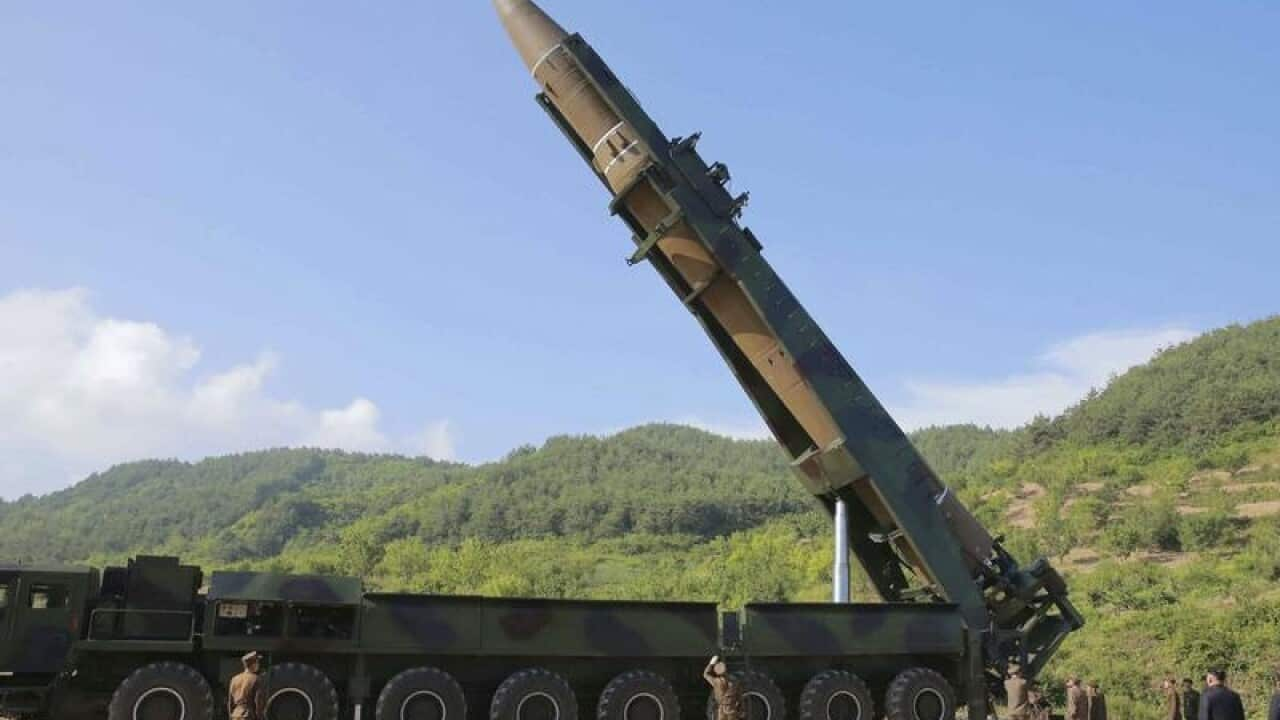Britain is planning to send two new aircraft carriers to the Asia-Pacific as it promises to step up its engagement in the region and with Australia.
North Korea and China were discussed "in depth" at a meeting of the two nations' foreign and defence ministers in Sydney on Thursday.
Foreign Minister Julie Bishop said the international rules-based order that has underpinned peace, stability and security in the region is under strain.
"We spoke about the challenges including in the South China Sea and we had a long discussion about the Pacific and the opportunities for deeper British engagement in our part of the world," she told reporters.
They agreed to identify opportunities to conduct - where possible - joint activities when the two countries have ships or planes in the area at the same time.
Foreign Secretary Boris Johnson said one of the first things Britain will do when two new "colossal" aircraft carriers are ready is send them on a freedom of navigation operation in the waters of Korea and Japan.
"To vindicate our belief in the rules-based international system and in the freedom of navigation through those waterways which are absolutely vital for world trade," he told reporters.
Late last year, Britain sent a squadron of Typhoon aircraft to conduct joint air drills with Japan amid heightened tension over the East and South China seas.
Both countries on Friday reiterated calls for China to use its influence over North Korea to get the pariah state to abandon its missile program.
It comes amid reports the Pentagon predicts Kim Jong-un will be able to make reliable, nuclear-capable intercontinental ballistic missiles as early as next year.
Defence Minister Marise Payne said Australia has been consistent in calling on North Korea to stop its provocative actions.
"Its long-term interests, the region's long-term interests and the world's long-term interests would be best served by them ceasing their nuclear activity and ballistic missile programs and engaging positively with the international community," she said.
British Defence Secretary Sir Michael Fallon echoed her sentiments, saying the tests were dangerous, illegal and in breach of United Nations obligations.
He said it was not possible to put together a missile program like North Korea's without assistance from the outside - whether it be financial, commercial or scientific.
"It is now for Beijing to use the influence it has over the North Korean regime to get it to abandon its program," he said.
Share

